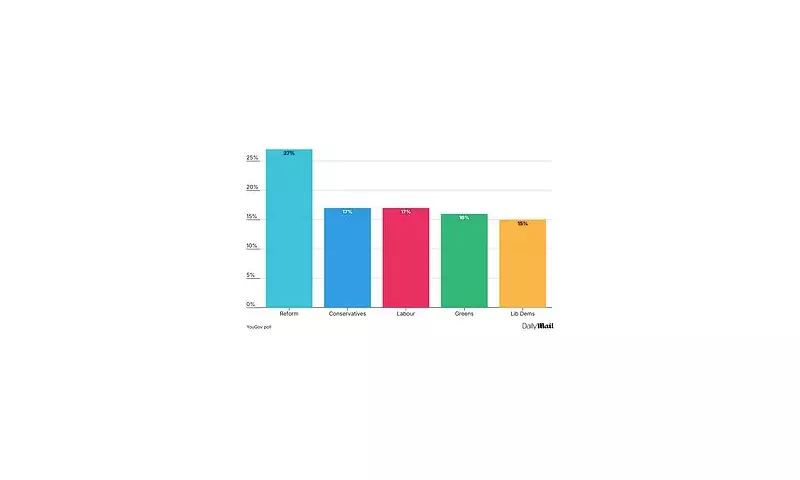
Sir Keir Starmer's Labour Party has been hit by a political earthquake as a devastating new poll reveals the party has slumped to a record low, holding just a one-point lead over the Greens.
Polling Catastrophe for Labour
The shocking survey results represent the worst performance recorded for Labour under Starmer's leadership and threaten to derail the party's general election ambitions. With the Conservatives maintaining their position, the narrowing gap between Labour and the Greens suggests significant voter disillusionment.
What the Numbers Reveal
The poll conducted by Savanta for the Daily Mail shows Labour dropping to just 30% support, while the Greens have surged to 29%. This dramatic shift indicates:
- A significant erosion of Labour's traditional support base
- Growing environmental concerns among voters
- Potential fragmentation of the centre-left vote
- Deepening challenges for Starmer's leadership
Political Fallout and Analysis
Political analysts are describing these results as a potential game-changer in British politics. The mere one-point separation between Labour and the Greens suggests the established political order could be facing unprecedented disruption.
This polling disaster comes at a critical time for Starmer, who has been attempting to position Labour as the natural party of government ahead of the next general election. The results will inevitably trigger internal party debates about strategy, policy direction, and leadership.
Broader Political Landscape
While Labour struggles, the Conservative Party maintains steady support, potentially benefiting from the split in opposition votes. This development raises serious questions about Labour's ability to secure a parliamentary majority and could force a radical rethink of the party's approach to key policy areas.
The dramatic surge in Green support reflects growing public concern about environmental issues and suggests climate change is becoming a defining political issue that could reshape the UK's political map.





